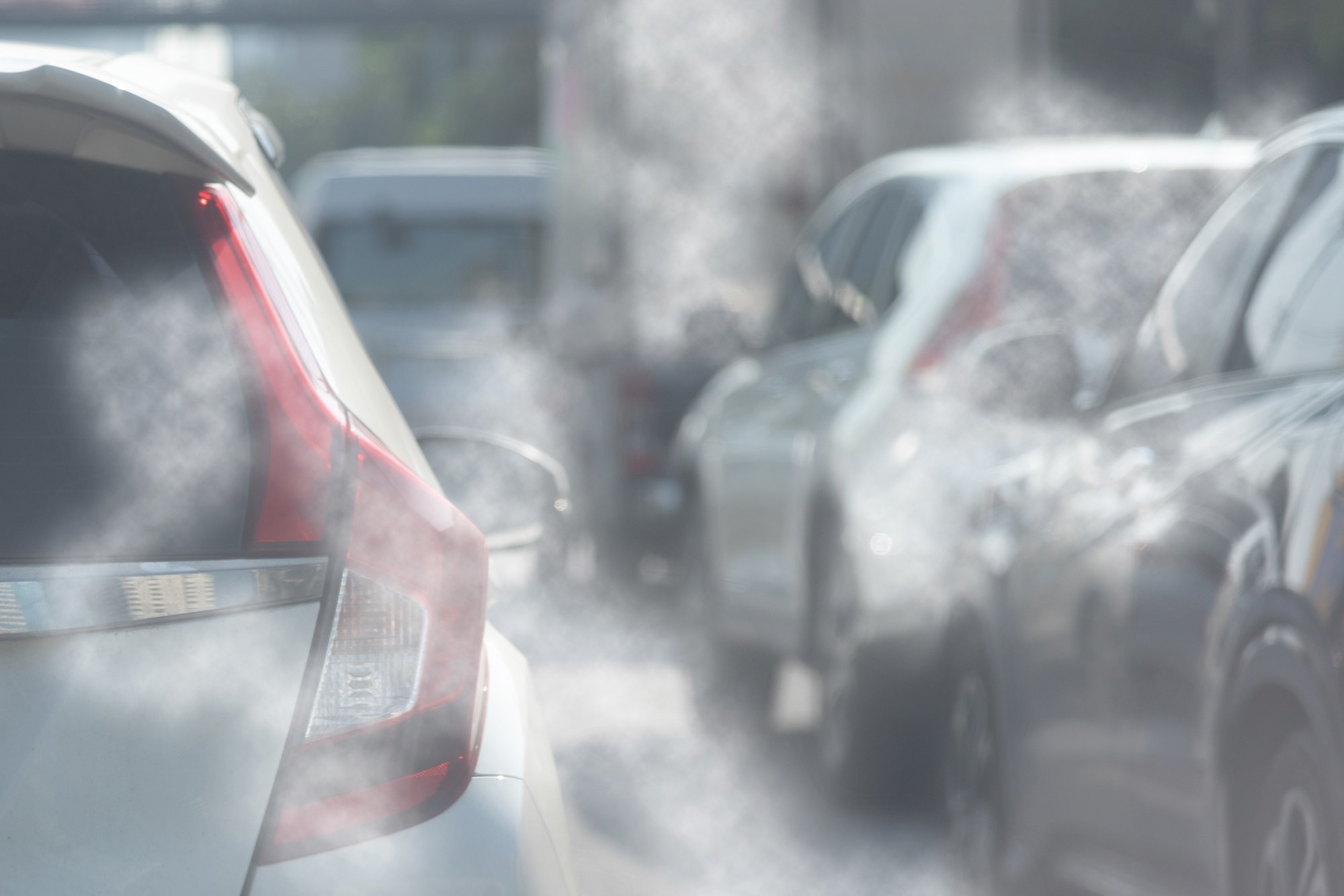Their findings indicate that as air pollutants linked to road traffic, particularly nitrogen dioxide (NO2) and particulate matter (PM2.5), rise in concentration in residential areas, older adults are more likely to experience a loss of independence.
This suggests that reducing pollution exposure could help prolong the ability of older adults to lead independent lives.
 Study: Source-Specific Air Pollution and Loss of Independence in Older Adults Across the US. Image Credit: khunkornStudio/Shutterstock.com
Study: Source-Specific Air Pollution and Loss of Independence in Older Adults Across the US. Image Credit: khunkornStudio/Shutterstock.com
Background
Functional decline among older populations, often resulting from chronic diseases and subclinical pathologies, leads to significant economic and emotional burdens as they lose their independence and require assistance for day-to-day living.
Previous research has established connections between air pollution and chronic illnesses such as cardiovascular diseases, diabetes, and respiratory diseases, which impair cognitive and physical functions. Despite these findings, we do not yet know how air pollution impacts the loss of independence.
About the study
This study addressed existing research gaps by investigating the associations between long-term exposure to particulate matter (PM2.5 and PM10-2.5), NO2, and ozone (O3) and loss of independence using a nationally representative cohort study and advanced spatiotemporal models that incorporated the time and place of exposure to pollution.
The study utilized data from a nationally representative sample of individuals over 50 in the United States, part of the Health and Retirement Study, which was linked to environmental measures from the Environmental Predictors of Cognitive Health and Aging study.
Participants were recruited from 1992 onwards, with new cohorts added every six years and interviews conducted once every two years.
The study included those respondents who had been interviewed at least twice from 1998 to 2016 and had not previously stated that they received help with daily living activities or lived in a nursing home.
Air pollution exposure, specifically PM2.5, PM10-2.5, NO2, and O3 concentrations, was estimated at the addresses of the respondents using spatiotemporal models.
Researchers assessed the loss of independence as new reports of needing help with daily activities or shifting to a nursing home.
Regression models were used to analyze associations between 10-year mean pollutant levels and loss of independence, adjusting for factors like age, sex, race, socioeconomic status, and chronic diseases. Various sensitivity analyses were conducted to validate the findings.
Findings
The study analyzed data from 25,314 participants, aged 61 years on average, to assess the impact of long-term exposure to air pollution on the loss of independence. Nearly 40% of participants experienced a loss of independence over the ten years included in the study.
Researchers found that higher levels of PM2.5 from road traffic and other sources, as well as NO2, were linked to an increased risk of losing independence.
Specifically, a 10-year average increase in PM2.5 linked to road traffic raised the risk by 10%, while NO2 increased the risk by 5%. Conversely, higher O3 levels were correlated with a 6% lower risk of losing independence.
The study highlighted that the primary factor driving these associations was the need for assistance with basic daily activities like bathing and dressing.
These results suggest that reducing air pollution from road traffic could potentially prevent nearly 730,000 new cases of loss of independence annually in the US, saving an estimated $11.7 billion per year in care costs.
Conclusions
This study highlights significant public health implications, revealing that long-term exposure to air pollution, especially from traffic, increases the risk of losing independence among older adults.
The results align with prior research on air pollution and physical or cognitive decline but offer novel insights by focusing on the need of older adults for personal care due to loss of function. The robust associations with traffic-related pollutants emphasize the need for policy measures targeting vehicle emissions.
Conversely, the unexpected finding that lower O3 levels were associated with higher risks of losing independence calls for further investigation.
Strengths of this study include its large, nationally representative sample and the detailed estimation of air pollutant levels at participants' residences. The use of various pollutants and emission sources provides comprehensive insights.
However, limitations exist, such as potential outcome misclassification due to socioeconomic factors influencing the use of care and the limited temporal resolution of pollution estimates.
Future research should focus on the mechanisms linking air pollution to loss of independence, the role of socioeconomic factors, and the unexpected effects of O3.
Addressing these areas could better inform interventions to reduce pollution-related health risks and support older adults' independence.
Journal reference:
-
Zhang, B., de Leon, C.F.M., Langa, K.M., Weuve, J., Szpiro, A., Faul, J., D’Souza, J., Kaufman, J.D., Hirth, R.A., Lisabeth, L.D., Gao, J., Adar, S.D. (2024) Source-Specific Air Pollution and Loss of Independence in Older Adults Across the US. JAMA Network Open. doi:10.1001/jamanetworkopen.2024.18460.https://jamanetwork.com/journals/jamanetworkopen/fullarticle/2820559?utm_source=For_The_Media